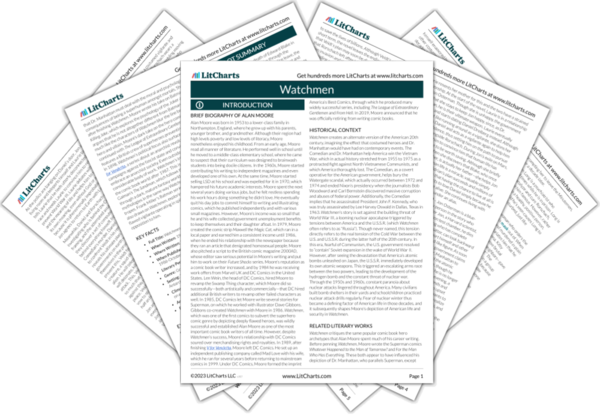Previous
Chapter 11: Look on My Works, Ye Mighty…
|
Previous
Chapter 11: Look on My Works, Ye Mighty…
|
Watchmen: Chapter 12: A Stronger Loving World Summary & Analysis |
Next
Themes
|


Upgrade to unlock the analysis and theme tracking for all of WatchmenWatchmen!
Get LitCharts A+